In 2022, around 142M people in the US used voice assistant. By 2026, that number is expected to jump to 157.1 million voice search users. So, it’s a smart move to include voice search optimization in your strategy.
If you are new to the topic, don’t worry. This post will cover everything you need to know about voice search optimization (VSO), including what it is and how to optimize your site to be discovered when people use their voice to search.
What is Voice Search?
Voice search is a technology that allows users to perform online searches by speaking into a device instead of typing. It uses speech recognition and AI to understand
spoken queries and deliver relevant results.
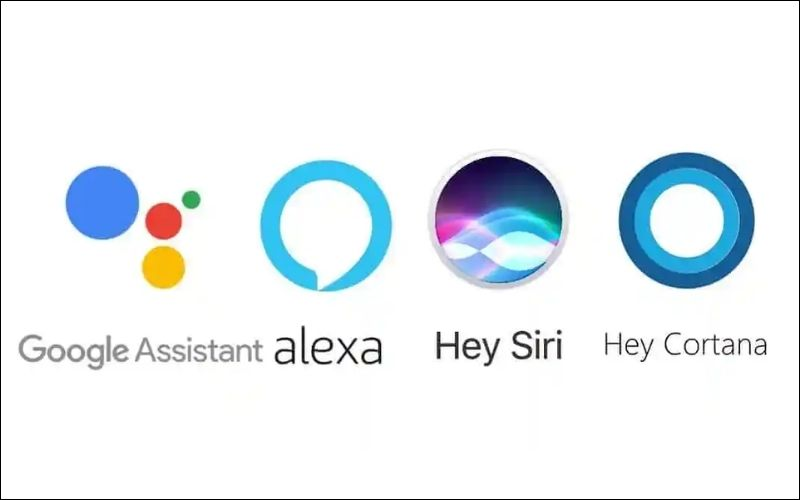
The trend of voice search is becoming more and more popular because of its convenience thanks to the premises and launching pads that are being developed at the present time.
Smart speaker devices
In the U.S, about 40 million people own smart speakers. In Vietnam, these devices are also gaining popularity as technology integrates into daily life.
Initially dominated by names like Alexa and Siri, voice recognition and command technologies have rapidly advanced, leading many tech companies to develop their own products.
Artificial intelligence and machine learning for voice processing
Advancements in artificial intelligence and machine learning have greatly improved how users interact with smart devices, especially for online searches.
For example, Google’s RankBrain can interpret words and phrases to deliver accurate results. It even predicts answers based on patterns in existing data when encountering unfamiliar queries.
Growing popularity of voice search for local services
More and more users are turning to voice search to discover local products and services. Recent statistics indicate that around 58% of individuals have used voice search to gather information about nearby businesses.
Voice search is quite different from the usual text-based search. The way we ask questions changes a bit. For example, if you want to find an Italian restaurant close to you, you might type “Italian restaurant near me” into a search engine.
But you’re more likely to phrase a voice search query like this: “Hey, Siri, can you find an Italian restaurant nearby?” We interact with our voice assistants as if they were actual people.
This means voice search queries tend to be more conversational, longer, and often come out as complete sentences or questions.To get picked up by voice assistants, you need to optimize for these kinds of queries.
The importance of voice search optimization for SEO
Optimizing for voice search helps you reach more people than optimizing for text-based searches only.
According to Statista, the use of digital voice assistants is projected to keep increasing.
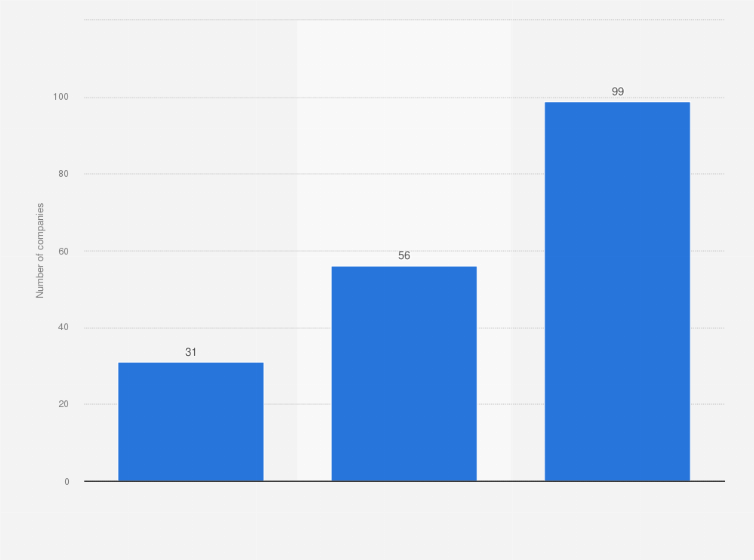 Number of Digital Voice Assistants in Use Worldwide from 2019 to 2024 (in Billions)
Number of Digital Voice Assistants in Use Worldwide from 2019 to 2024 (in Billions)
In five years, from 2019 to 2024, the number of digital voice assistants increased by over 2 times. Many people use them for routine tasks like setting alarms or playing music. But people also use digital assistants to find information.
The appearance and widespread adoption of voice search will significantly shape customer behavior by pushing consumers to expect faster and more personalized responses.
Instead of scrolling through pages of results, customers using voice search are often presented with a single best answer. This raises the stakes for businesses aiming to be that top result.
This behavior shifts purchasing journeys, as consumers lean toward instant decision-making based on concise, trusted answers delivered by their devices.
Companies that embrace voice search optimization will be better positioned to meet changing consumer expectations, gain a competitive edge, and build stronger connections with customers who increasingly rely on hands-free, voice-driven interactions.
How to optimize voice search optimization (VSO) effectively?
To optimize VSO effectively, follow these strategies:
1. Focus on Conversational Keywords
- Long-Tail Keywords: Use natural, conversational phrases people use when speaking.
- Question-Based Queries: Optimize for “who”, “what”, “where”, “when”, and “how” questions, as voice searches often start this way.
2. Optimize for Local SEO
- Google Business Profile: Ensure your profile is updated with accurate contact details, address, and opening hours.
- Location-Based Keywords: Include phrases like “near me”.
3. Create FAQ Pages
- Structure content with frequently asked questions (FAQs) that directly address user queries.
- Use schema markup for FAQs to enhance rich results.
4. Improve Website Speed and Mobile-Friendliness
- Optimize loading time and ensure mobile responsiveness, as most voice searches occur on mobile devices.
- Use tools like Google PageSpeed Insights to test and improve performance.
5. Focus on Featured Snippets
- Write concise answers to commonly asked questions.
- Structure content using headings (H1, H2) and bullet points to make it snippet-friendly.
6. Use Schema Markup
- Implement structured data to help search engines understand your content better and provide rich results.
- Focus on LocalBusiness, FAQPage, and How to schemas.
- Need help getting started? You can follow this guide on how to add a product on Shopify to familiarize yourself with structured content setup in eCommerce.
How schema and snippet enhance your VSO
Voice Search Optimization (VSO) leverages Schema Markup and Snippets to make your content more discoverable and readable for voice assistants like Google Assistant, Alexa, and Siri. To be more specific, Schema Markup provides structured data that helps search engines interpret your content better. This structured information is critical for voice search queries, which often rely on direct answers or rich snippets.

Tools like SearchPie can simplify this process, ensuring your website is optimized for voice search effectively. To get started, once you installed the app, please navigate to Schema & Snippets.
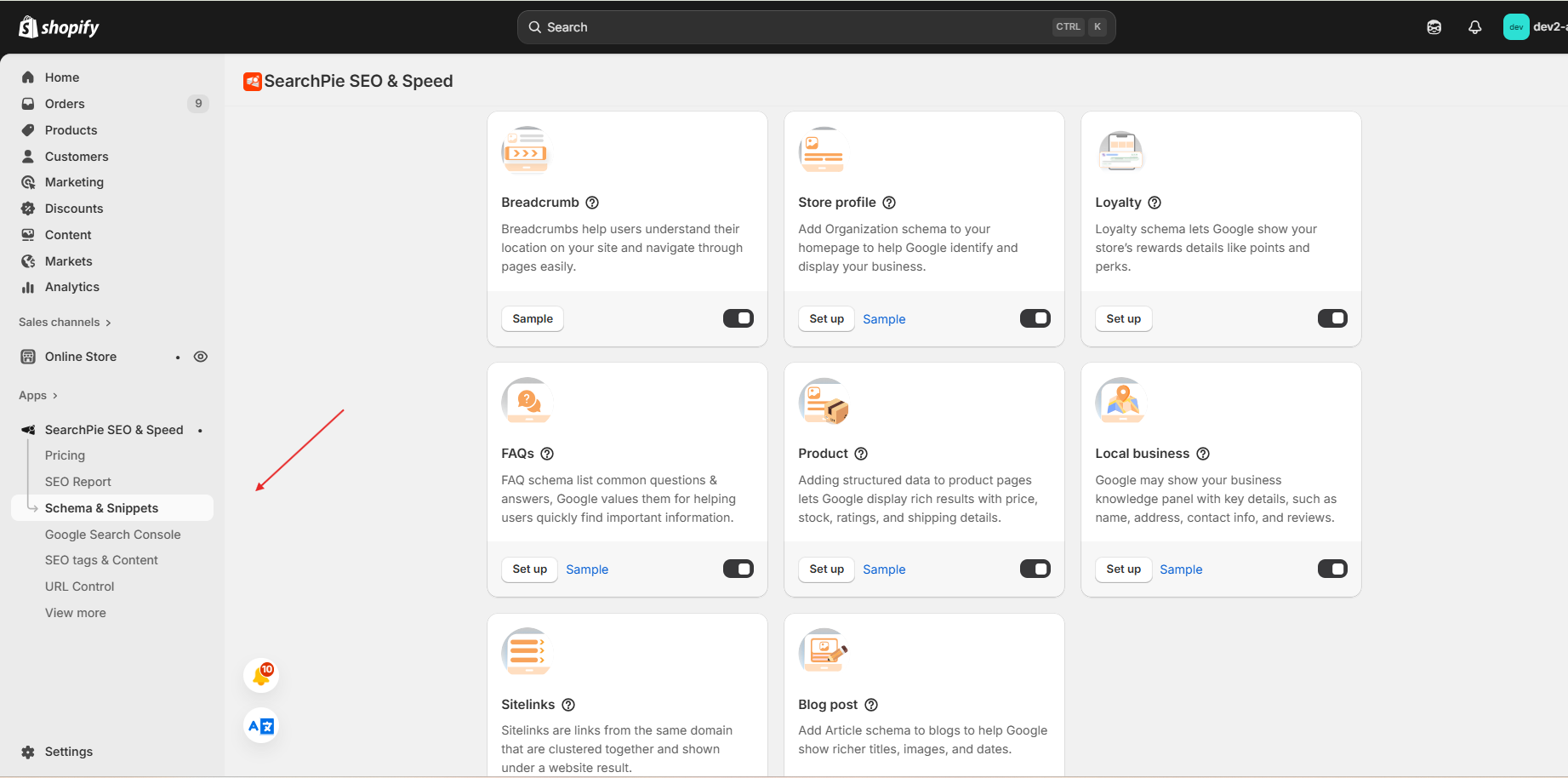
1. Rich snippets of product pages
With SearchPie, a markup is added to your product pages so Google can show detailed product information as rich results, including availability, images, price, and review ratings. Let’s look at an example to see how these product rich snippets appear in Google Search.

It is quite simple to set up. At the Schema & Snippet section of SearchPie, toggle the button of the Product snippet and click Set Up to fill in the necessary information. Once the button is toggled and the information is filled, your Product snippet is good to go.
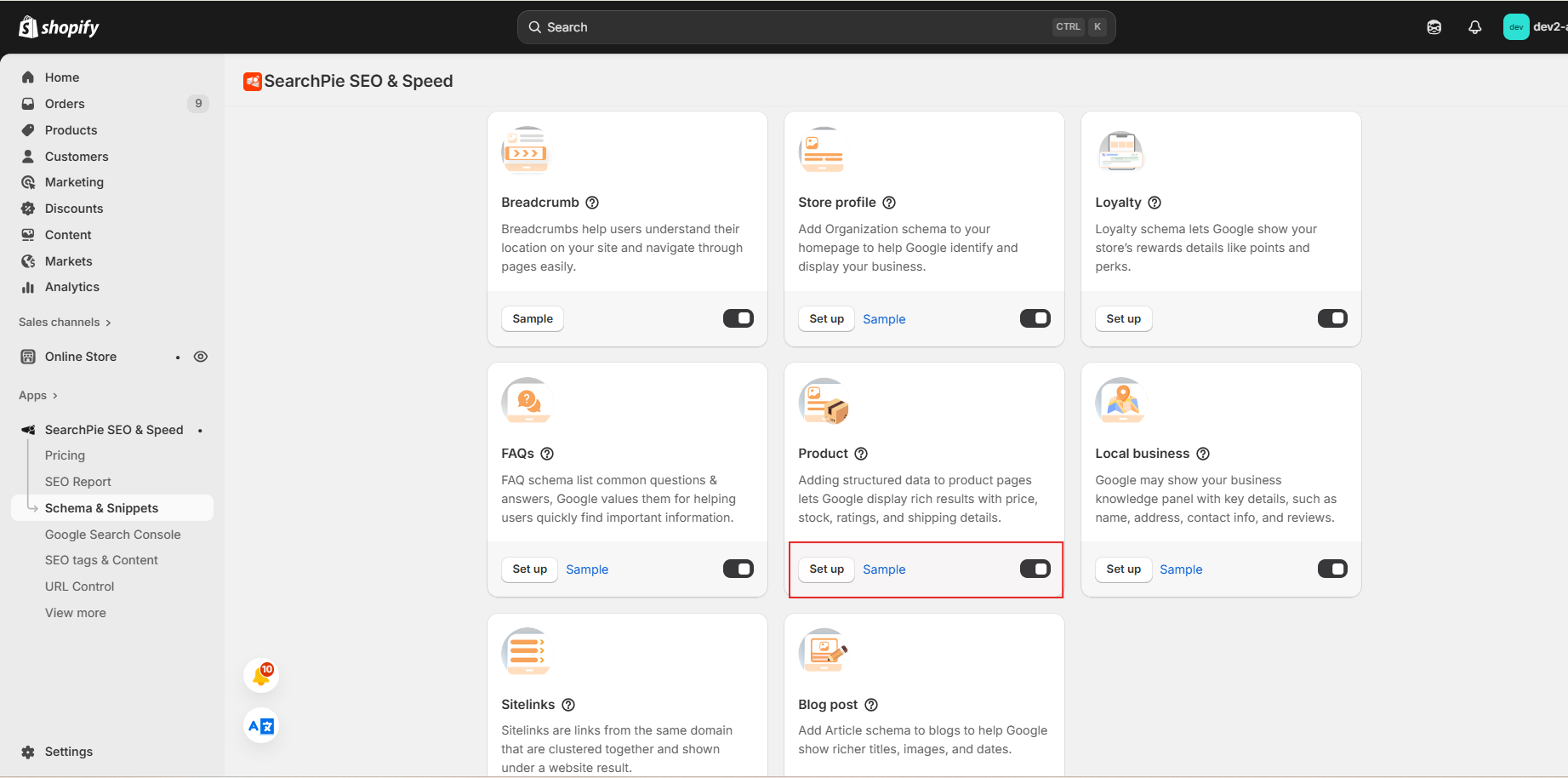
2. Rich snippet of FAQ
Search Pie app will add a FAQ markup so Google can provide detailed FAQ as a rich result in Google Search, including all the frequently questions along with their answers so customers can understand your store/page more.
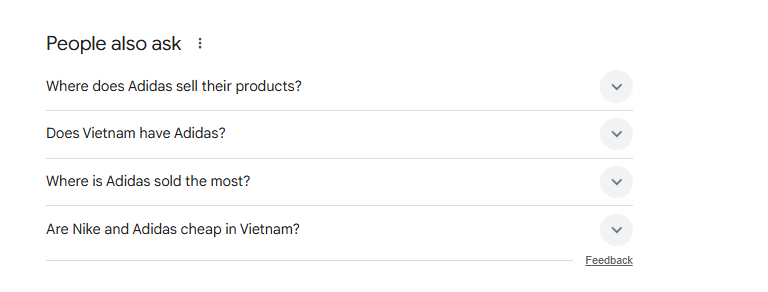 To set up the FAQ snippet with SearchPie, simply toggle the button and click the Set Up button to insert your FAQ content for showcase.
To set up the FAQ snippet with SearchPie, simply toggle the button and click the Set Up button to insert your FAQ content for showcase.
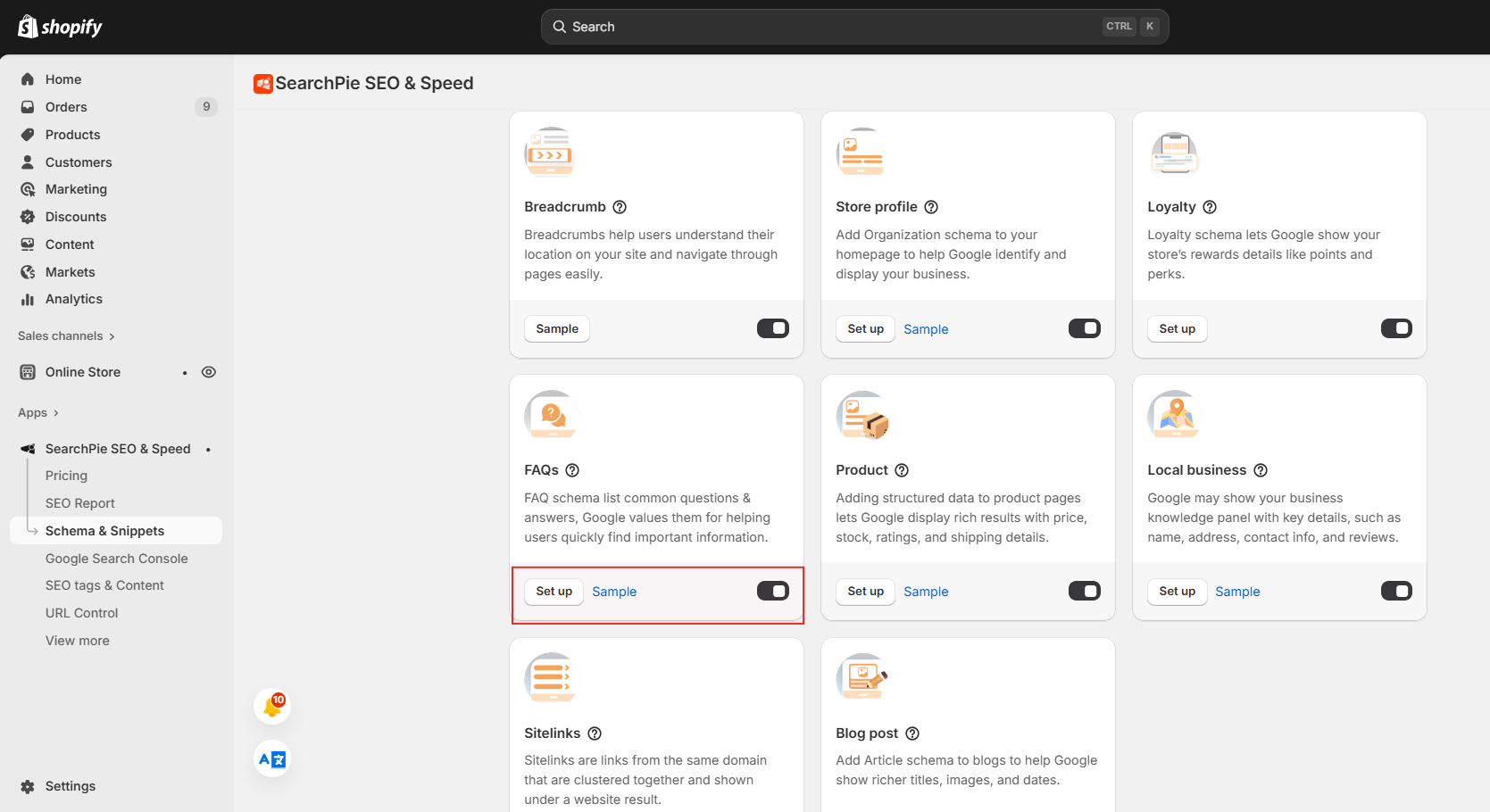
3. Rich snippet of blog/blog post pages
SearchPie enhances your Blog and Blog Post pages with structured data, allowing Google to show detailed collection information as rich results in search.

The Blog post snippet is quite simple to set up within SearchPie. All you need to do is toggle the button and the set up is complete
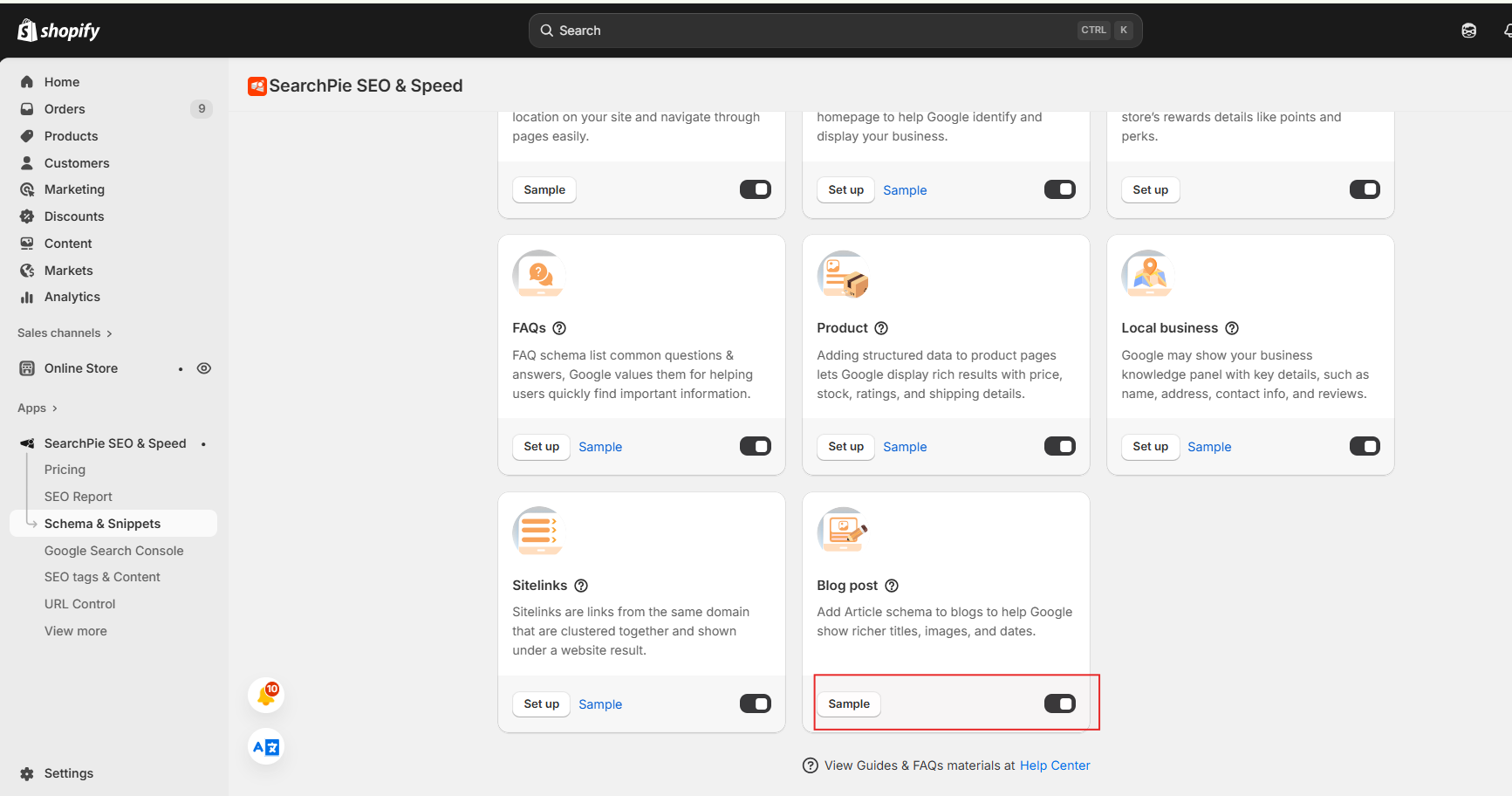 4. Local business
4. Local business
Local SEO is the practice of increasing the search visibility of brick-and-mortar stores with physical locations. With Local Business structured data, Search Pie will help you tell Google about your business hours, different departments within a business, reviews for your business, and more.
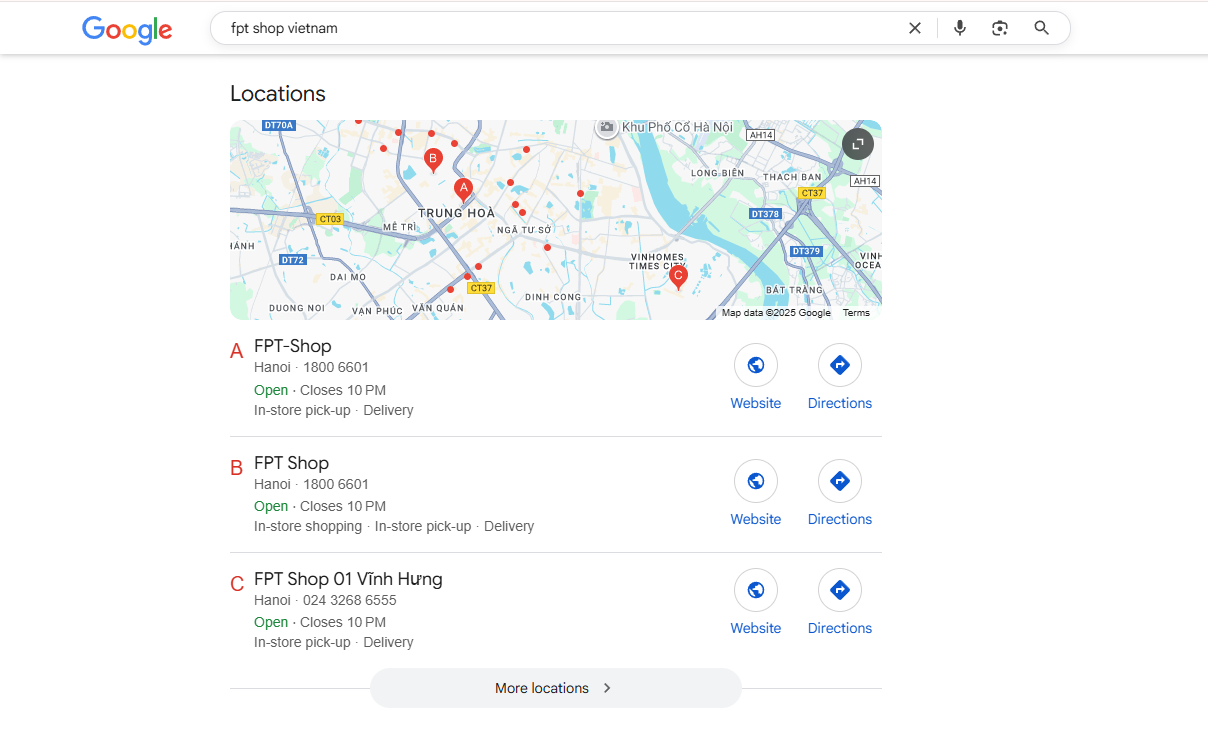
To add this local business snippet within the SearchPie app, navigate to the Schema & Snippet section and you shall see the Local SEO snippet. Once you fill in all the necessary information and toggle the button, your Local Business snippet is ready.
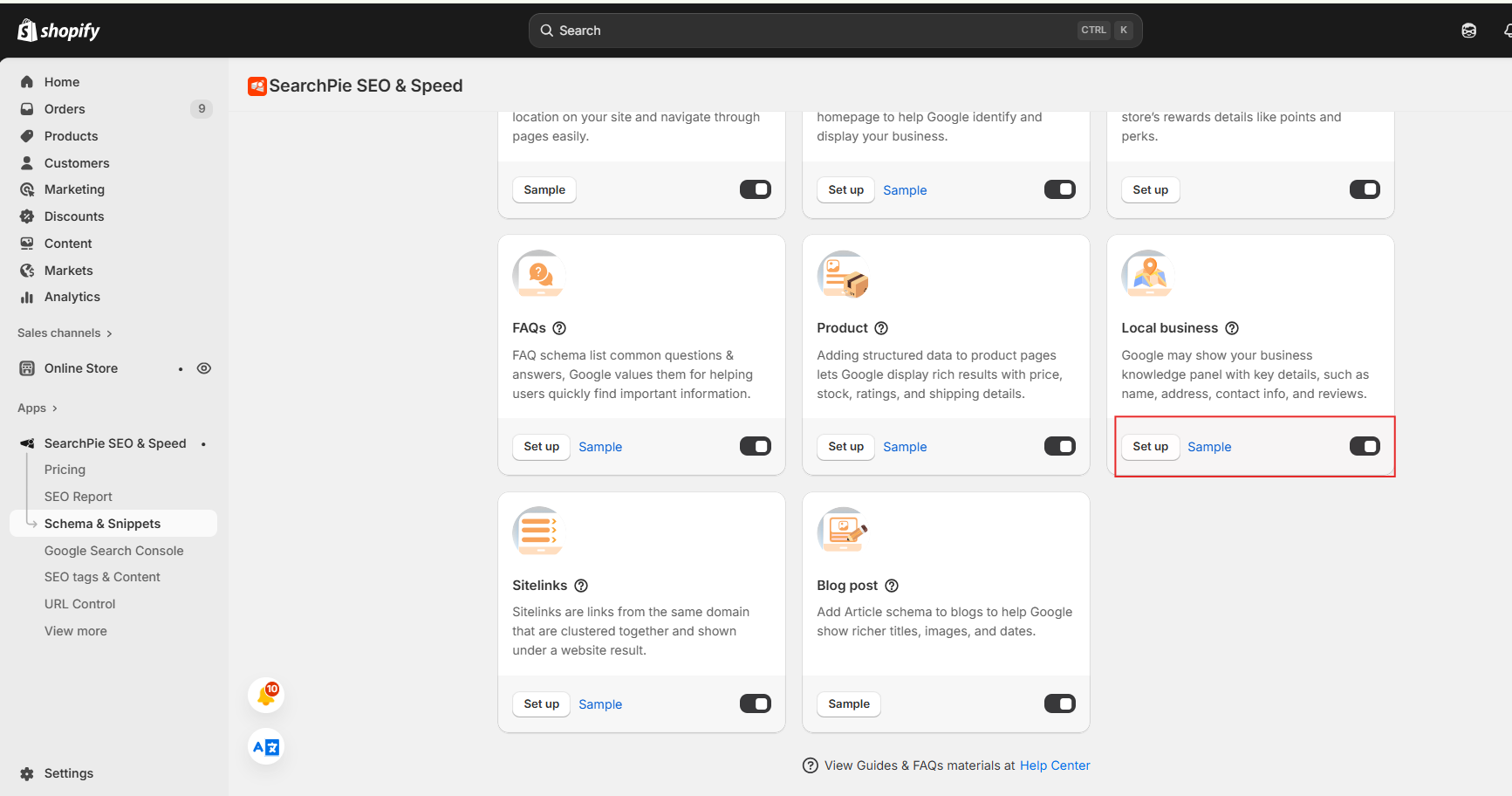
Conclusion
Voice search optimization can increase leads for your business and boost sales. By using these tips, you can attract more voice search users to your business. If you feel overwhelmed by the steps needed for this optimization, remember you can use SEO tools to upgrade your voice search optimization process.














